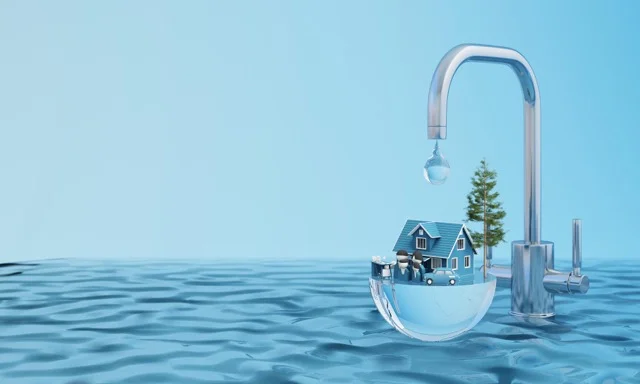Not known Factual Statements About Reclaim Waste
Not known Factual Statements About Reclaim Waste
Blog Article
Some Known Incorrect Statements About Reclaim Waste
Table of ContentsAbout Reclaim WasteWhat Does Reclaim Waste Mean?All about Reclaim WasteFacts About Reclaim Waste UncoveredA Biased View of Reclaim Waste
Discover the kinds, incidents, and forms of fluid waste. Residential sewer waste refers to the waste and products from a residential sewage-disposal tank. This sort of waste is created by people in homes, institutions, and other structures. This only consists of septic tanks that have a drain area. The proper monitoring and disposal of domestic sewer waste require fluid waste to be transferred to a sewer treatment plant where the appropriate methods and tools are put on purify and deal with waste.
Industrial waste typically includes prospective threats, such as flammable products or a blend of fluid and strong waste items, and requires an advanced and thorough disposal process. The disposal of industrial waste usually entails the filtering of waste before transportation to ensure risk-free and correct disposal. Industrial waste is developed from by-products and drainage of industrial procedures and manufacturing.
This sort of waste can not use the exact same sewage administration transport or processes as septic or business liquids. The industrial waste monitoring process calls for the examination and screening of fluid waste before it undergoes the disposal procedure (industrial wastewater treatment). Runoff waste is the fluid waste that comes from runoff and excess stormwater in highly inhabited locations or cities
Overflow waste can cause contamination and flooding if not dealt with effectively. Find out a lot more about sewage system cleaning and waste administration. Ensuring proper waste monitoring can stop calamities and decrease environmental damage. Both people in residential setups and professionals in commercial or production sectors can take advantage of understanding the procedures and regulations of fluid waste management.
Some Known Questions About Reclaim Waste.
Call PROS Providers today to learn more about our waste management and disposal solutions and the appropriate ways to take care of the liquid waste you generate.
(https://justpaste.it/fauht)This so-called 'wastewater' is not just an important source however, after therapy, will be released to our land, waterways or the ocean. Used water from commodes, showers, bathrooms, kitchen sinks, washings and industrial processes is known as wastewater.

water used to cool down machinery or tidy plant and equipment). Stormwater, a form of wastewater, is overflow that moves from agricultural and city locations such as roof coverings, parks, yards, roads, paths and rain gutters right into stormwater drains pipes, after rainfall. Stormwater streams unattended straight to local creeks or rivers, eventually reaching the sea.
Not known Details About Reclaim Waste
In Queensland, a lot of wastewater is dealt with at sewage therapy plants. Wastewater is carried from residential or industrial sites through a system of sewers and pump stations, understood as sewage reticulation, to a sewer therapy plant.
The Division of Natural Resources recommends regional governments concerning handling, operating and preserving sewerage systems and therapy plants. In unsewered areas, neighborhood federal governments may require householders to mount specific or home sewage treatment systems to deal with residential wastewater from bathrooms, kitchens, shower rooms and laundries. The Department of Natural Resources authorizes using family systems when they are shown to be effective.
In some brand-new neighborhoods, therapy of some stormwater to eliminate clutter, sand and gravel has actually begun utilizing gross toxin traps. Wastewater therapy takes place in four phases: Gets rid of solid matter.
Uses little living organisms recognizes as micro-organisms to damage down and remove continuing to be liquified wastes and fine particles. Micro-organisms and wastes are integrated in the sludge.
The Greatest Guide To Reclaim Waste
Nutrient elimination is not readily available in all sewer therapy plants due to the fact that it calls for costly specialist devices. It is ending up being a lot more typical in Queensland. Clear fluid effluent generated after therapy might still include disease-causing micro-organisms. If this effluent is released into rivers such as rivers or the sea, the micro-organisms will at some point pass away out.

This typically implies wastewater has to be treated or impurities eliminated prior to it can be discharged to waterways. A lot of wastewater streams right into the sewage system. Under the Act, neighborhood governments administer approvals and permits for eco relevant activities (Periods) entailing wastewater launches that might have a local effect. The department administers approvals and permits to ERAs including wastewater launches that might have a local or statewide effect.
How Reclaim Waste can Save You Time, Stress, and Money.
Monitoring offers accurate info about water top quality and can validate that permit conditions are being met. The info obtained via surveillance offers the basis for making water high quality choices.
Report this page